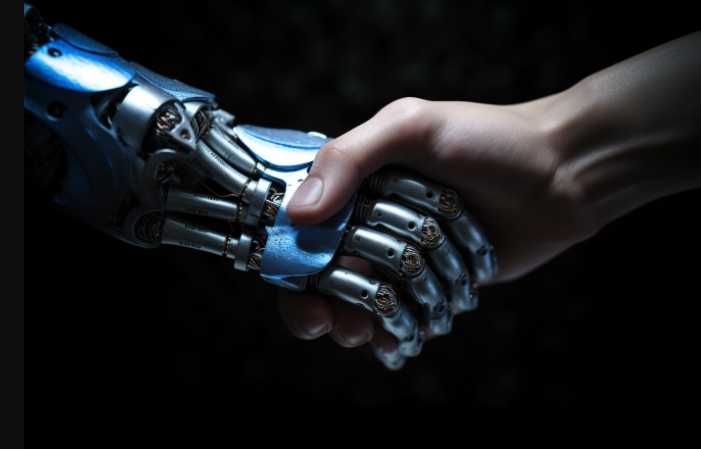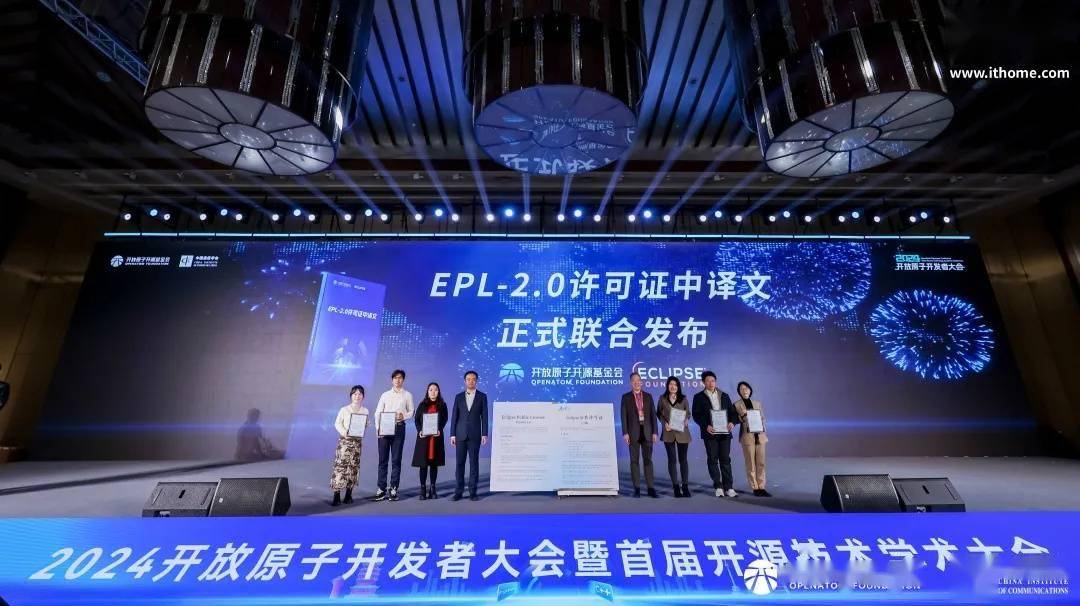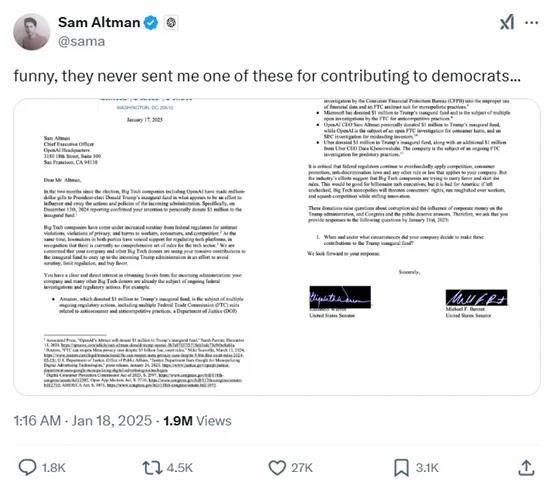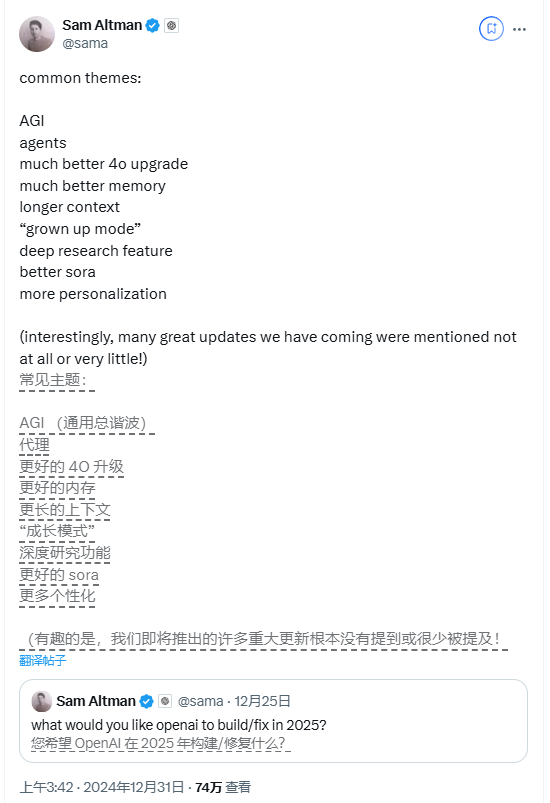OpenAI CEO Sam Altman has been in the spotlight lately, particularly regarding discussions about his equity stake in the company. In a recent interview with Bari Weiss, Altman addressed his equity status at OpenAI, reigniting widespread interest.
Altman has repeatedly stated in public that he does not own any shares in OpenAI, running the company out of passion. However, during a recent interview, Altman revealed that he had previously held some equity in OpenAI through Sequoia Capital but has since sold it. When asked about his shareholding if OpenAI becomes a for-profit entity, Altman said he holds a small amount of equity, which is insignificant, and he is unsure about what future shares he might receive.
Information disclosed by OpenAI on its website indicates that Altman had made an indirect investment in the company through Y Combinator before joining full-time. His investment through Sequoia Capital, however, was not widely known. Sequoia Capital first invested in OpenAI in 2021, when the company's valuation was around $14 billion. This year, OpenAI's valuation soared to $157 billion, with Sequoia Capital participating in this round.
Despite the significant increase in the value of Sequoia Capital's stake in OpenAI, the timing and price at which Altman sold these shares remain unknown. Venture capital firms like Sequoia Capital typically do not disclose information about their limited partner investors, so the details of Altman's sale remain unclear.
An OpenAI spokesperson confirmed Altman's previous statements to TechCrunch, saying he never directly owned any shares in OpenAI but held a minor stake in a broad fund under Sequoia Capital, which he no longer has any ongoing commitment to.
It is noteworthy that most CEOs own equity in the companies they lead, especially for publicly listed CEOs, where equity often constitutes a significant portion of their compensation. However, OpenAI's structure is relatively unique as a non-profit organization. Altman has explained that his initial decision not to hold company equity was due to the non-profit board's requirement of a majority of independent directors, who cannot hold company equity. This decision has led to many questioning Altman's motivation in the company, which could be one reason why OpenAI might be considering changing its structure.
As OpenAI seeks to transform its for-profit branch into an independent company, the issue of Altman's equity in OpenAI is becoming increasingly significant. Reports suggest that OpenAI might grant the CEO some equity during this transition, but both the company and Altman have denied such plans.
OpenAI's for-profit transformation also faces other risks. Elon Musk has filed a lawsuit against OpenAI, claiming the startup abandoned its original non-profit mission. In an interview, Altman fiercely criticized Musk's lawsuit and Meta's request to California's Attorney General to block OpenAI's for-profit transformation.
Altman called Musk a bully who enjoys causing disputes. Regarding Meta's actions, Altman said he is unsure of their motives but guessed they might be out of malice or to please Musk, helping him compete with OpenAI.
Although OpenAI claims Altman's knowledge of the company through Sequoia Capital is negligible, there is indeed a contradiction between his earlier statements about not owning any equity and his latest remarks. This has sparked more speculation about OpenAI's future direction and Altman's role in the company.







暂无评论